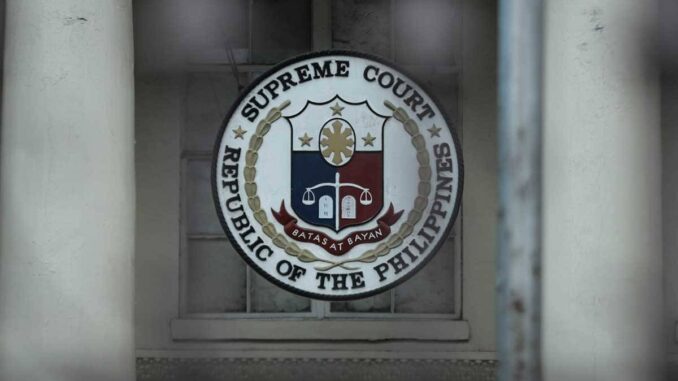
THE Supreme Court ruled that a violation of procurement laws by a public official does not necessarily qualifies as violation of Republic Act 3019, or the Anti-Graft and Corrupt Practices Act, noting all elements of graft must be proven beyond reasonable doubt, not just deficiencies in the procurement process.
Supreme Court First Division Associate Justice Jose Midas Marquez acquitted Arnold Navales, Rey Chavez, Rosindo Almonte, Alfonso Laid and William Guillen — five former officials of Davao City Water District (DCWD) — of violating Section 3(e) of Republic Act 3019.
The five were accused of bypassing the competitive public bidding process required under Presidential Decree 1594, which mandates a transparent bidding procedure for government infrastructure contracts.
The Sandiganbayan ruled the five officials guilty of graft, saying their actions violated procurement laws.
The Supreme Court, however, overturned the Sandiganbayan’s conviction, noting that not every violation of procurement rules amounts to corruption or graft.
The Court ruled that in order to secure a conviction under Section 3(e) of Republic Act 3019, it is not enough to prove merely that procurement laws were violated.
Prosecutors must also show that the public officers acted with bad faith, gross negligence, or manifest partiality, which led to harm or unfair advantage to a private party, or caused undue damage to the government.
The Court said that while there were procedural errors in the procurement process, there was no evidence that the five accused acted with malicious intent or personal gain.
It added that the petitioners were merely involved in recommending the award of the contract, which was ultimately approved by the DCWD Board.





Be the first to comment